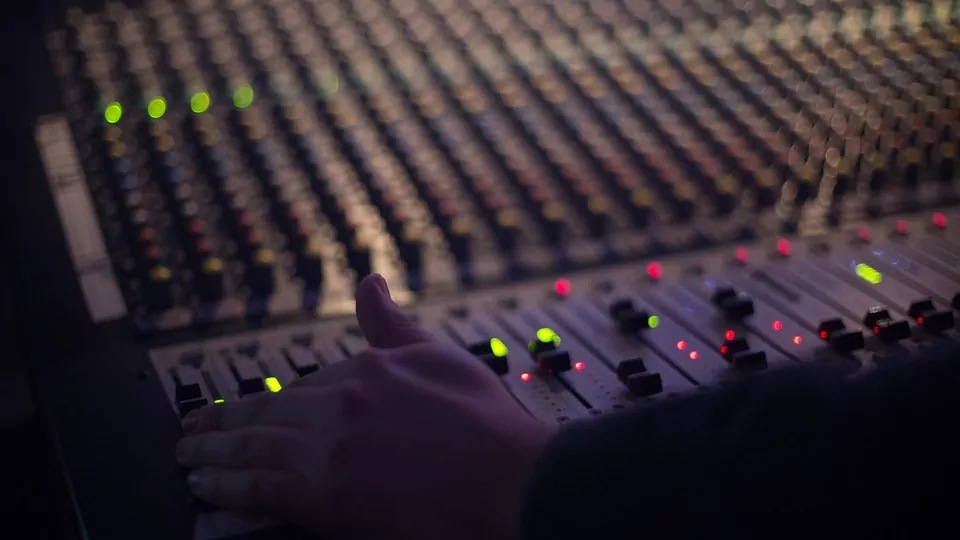A Guide For Beginners: Top Stages Of Music Production
Are you interested in creating your music but don’t know where to start?
Music production can be intimidating for a beginner, but following the right workflow can make it much easier. Understanding the basics of music production will give budding artists and composers the confidence they need to pursue their creative endeavors. Here’s a guide to assist beginners by outlining some of the top stages of music production.
From sound selection and editing to mixing, mastering, and even distribution – understanding each stage in detail can help true music creators take their artistry to the next level!

Understanding the Basics of Music Production
Music production is a fascinating field that involves a combination of artistry and technical know-how. At its core, music production creates a musical recording by mixing different sound elements. This can include everything from a singer’s vocals to instruments, digital sound effects, and more.
Understanding the basics of music production is essential for anyone who wants to make high-quality recordings. This involves learning about different types of equipment, software, and techniques used to record, mix, and master music. With the right tools and knowledge, anyone can produce their music, whether it is for personal or professional purposes.
Pre-Production and Planning
Before any music production process can begin, a plan must be in place. This is known as pre-production, and it involves the artist or composer making important decisions related to the song they want to create.
This includes selecting an appropriate tempo, deciding on instrumentation and arrangement, and choosing studio musicians best suited for the project. Pre-production is also the stage where a composer should establish their desired sound and create a roadmap for how they want the final product to turn out.
However, this part of the process can be too overwhelming for beginners, and it is often best to start with smaller projects.
This might involve creating a simple loop or recording one instrument simultaneously. These small successes can help build confidence and provide insight into what will be needed for the full production of an entire song.
Recording the Tracks
Recording tracks is essential to music production, and getting the tone right is crucial. Professional recording studios are equipped with top-notch gear that can capture the nuances of a performance, from the subtlest string vibrato to the raw power of a screaming guitar solo.
With the right mix of microphones, preamps, and signal processing, engineers can sculpt a tone that perfectly suits the track, whether warm, inviting, edgy, aggressive, or cool and detached.
And with the rise of digital audio workstations, musicians can now achieve high-quality recordings from the comfort of their home studios. You can get a professional music production setup for beginners and start experimenting with different sounds and techniques without breaking the bank. Maybe you want to build a particular soundscape or experiment with unusual vocal effects – the possibilities are endless.
Editing and Arranging Your Song
As a musician or songwriter, your creative process doesn’t end once you’ve written your song. It’s only just begun. Editing and arranging your song is an essential part of the songwriting process that allows you to take your raw ideas and refine them into a polished final product.
Editing involves making changes and tweaks to your song’s structure, lyrics, melody, and harmony, while arranging is all about deciding how to present those elements most effectively and engagingly.
Whether you’re an experienced songwriter or just starting, taking the time to fine-tune your song through editing and arranging can make a world of difference in how it resonates with your audience. So take a step back, listen to your song with fresh ears, and get ready to work your magic!
Mixing and Mastering the Tracks
Mixing is the art of balancing instruments, vocals, and other elements in the song. At the same time, mastering is the final step that ensures the final product is technically and aesthetically polished. With the right mix and mastering tools, you can achieve a professional sound that will stand out in the music market.
Utilizing modern-day software and experience, the possibilities in the process remain endless. For instance, you can use compression to even out your vocal levels or apply EQ to shape the sound of your instruments. You can also apply a range of effects such as reverb, chorus, and delay to give your mix of character and depth.
Finally, mastering will bring the song to commercial standards and make it radio-ready. Mastering engineers can add clarity and punch to your mix through careful equalization and dynamics processing while removing any hiss or distortion that might otherwise detract from the listening experience.
Finalizing Your Track for Release
As an artist, there’s nothing like the feeling of finalizing your track for release. It’s the moment you’ve been working towards for so long, where all the hours in the studio and countless revisions finally come together to create a finished product that you’re truly proud of. But before you hit that upload button or send it off to your label, ensuring everything is perfect is crucial. This means double-checking for mistakes, ensuring the mix and master are top-notch, and ensuring your metadata is in order.
By putting in the extra effort to polish your track, you can be confident that your music will stand out and meet professional standards.

After considering the basic stages of music production and going through them step-by-step, songwriting, recording, and music production becomes an achievable goal. From coming up with ideas to drafting lyrics and putting down the right words in your song, then setting up the right equipment for recording and determining the beats, to mixing and mastering the entire track to perfection – there’s no limit to what you can achieve with a little bit of dedication.
With practice, patience, and some confidence in creativity, diving into this exciting journey of producing music is much easier – enabling you to make great tracks!

